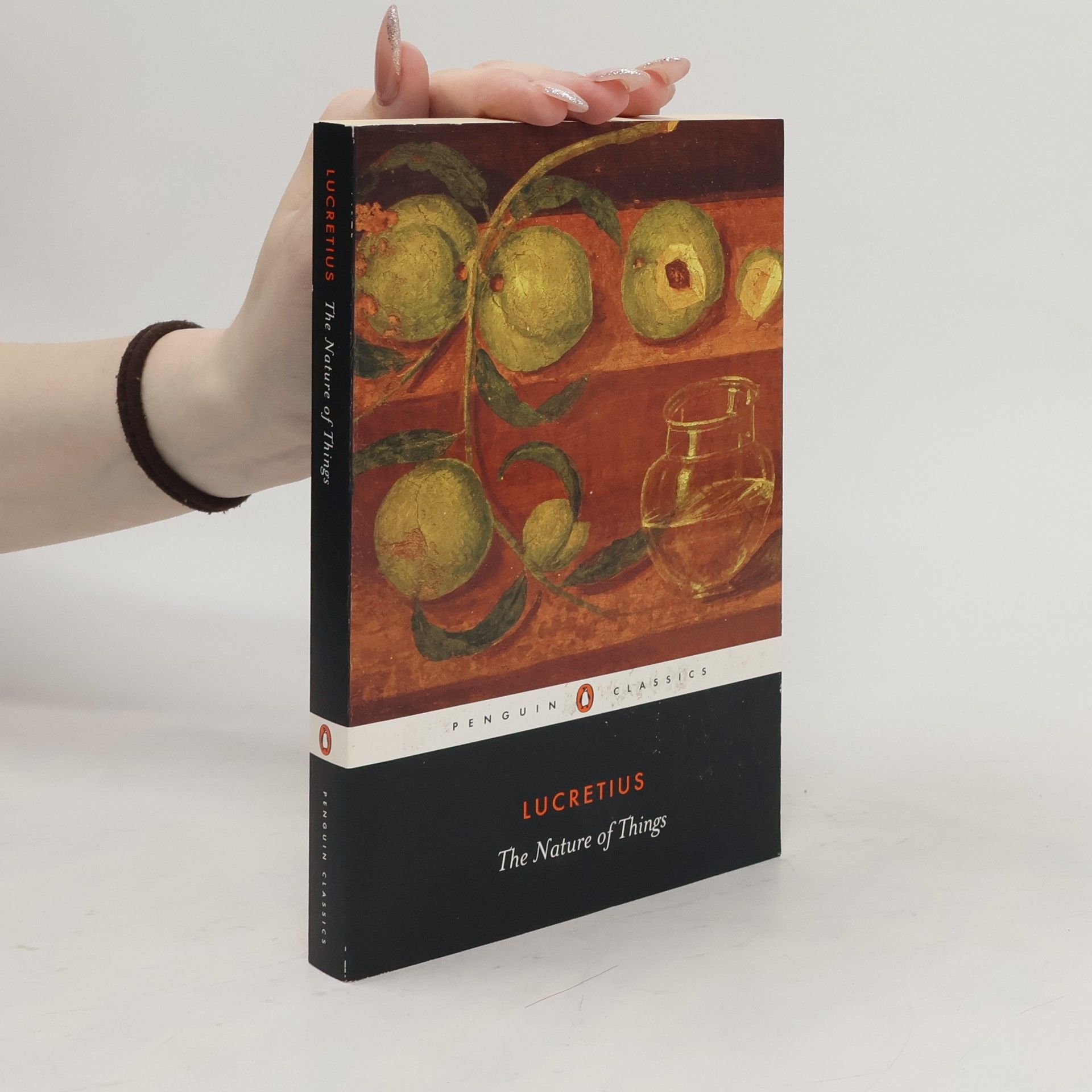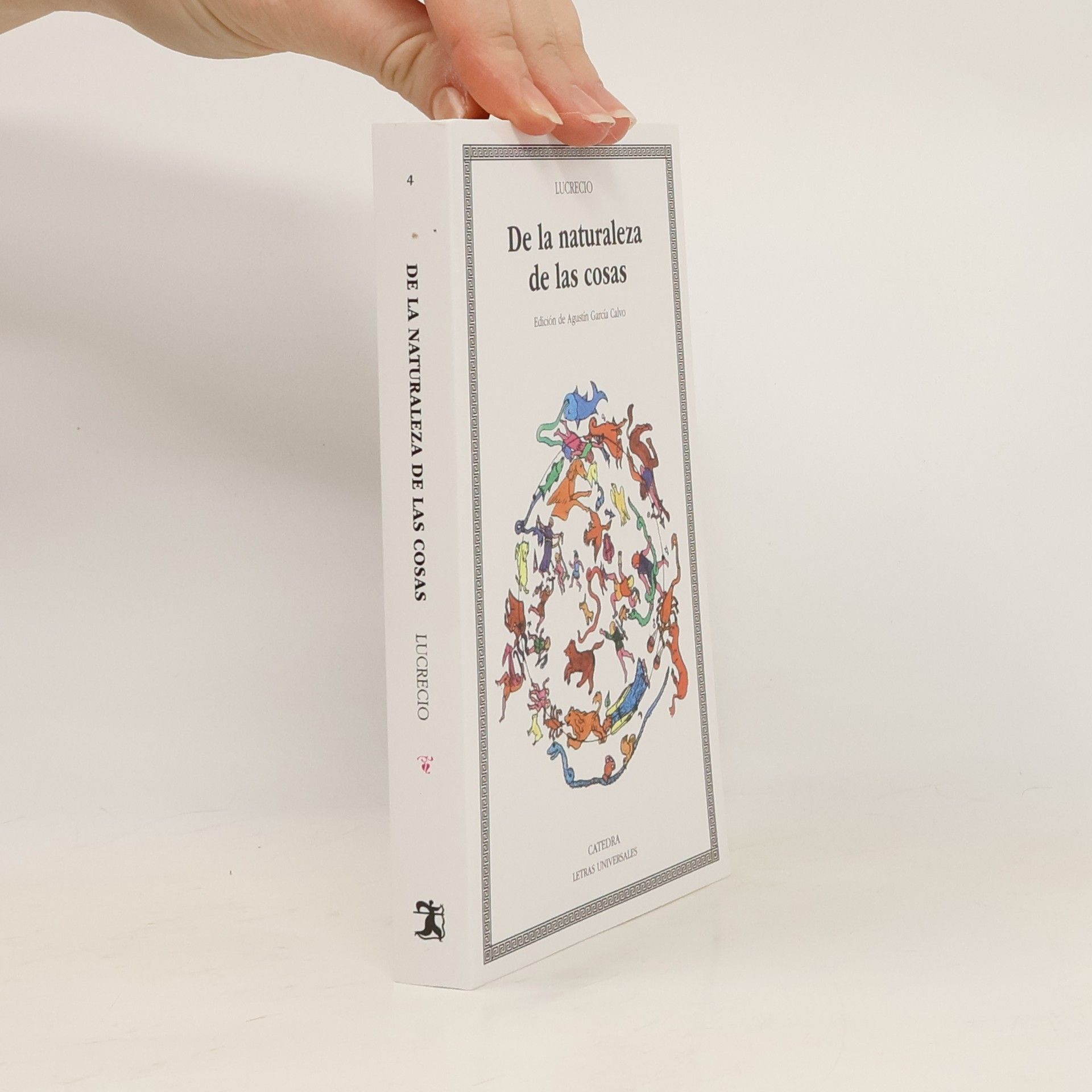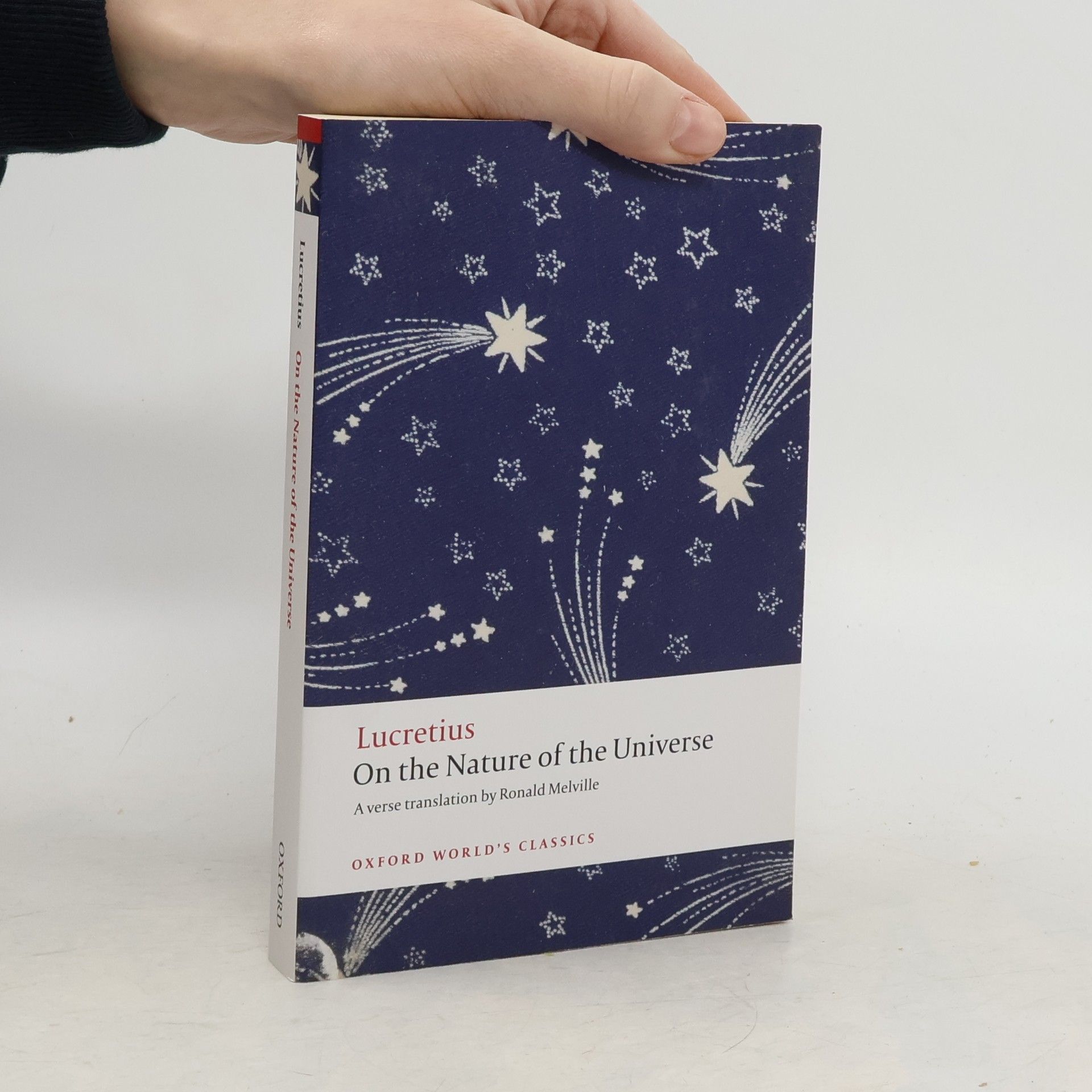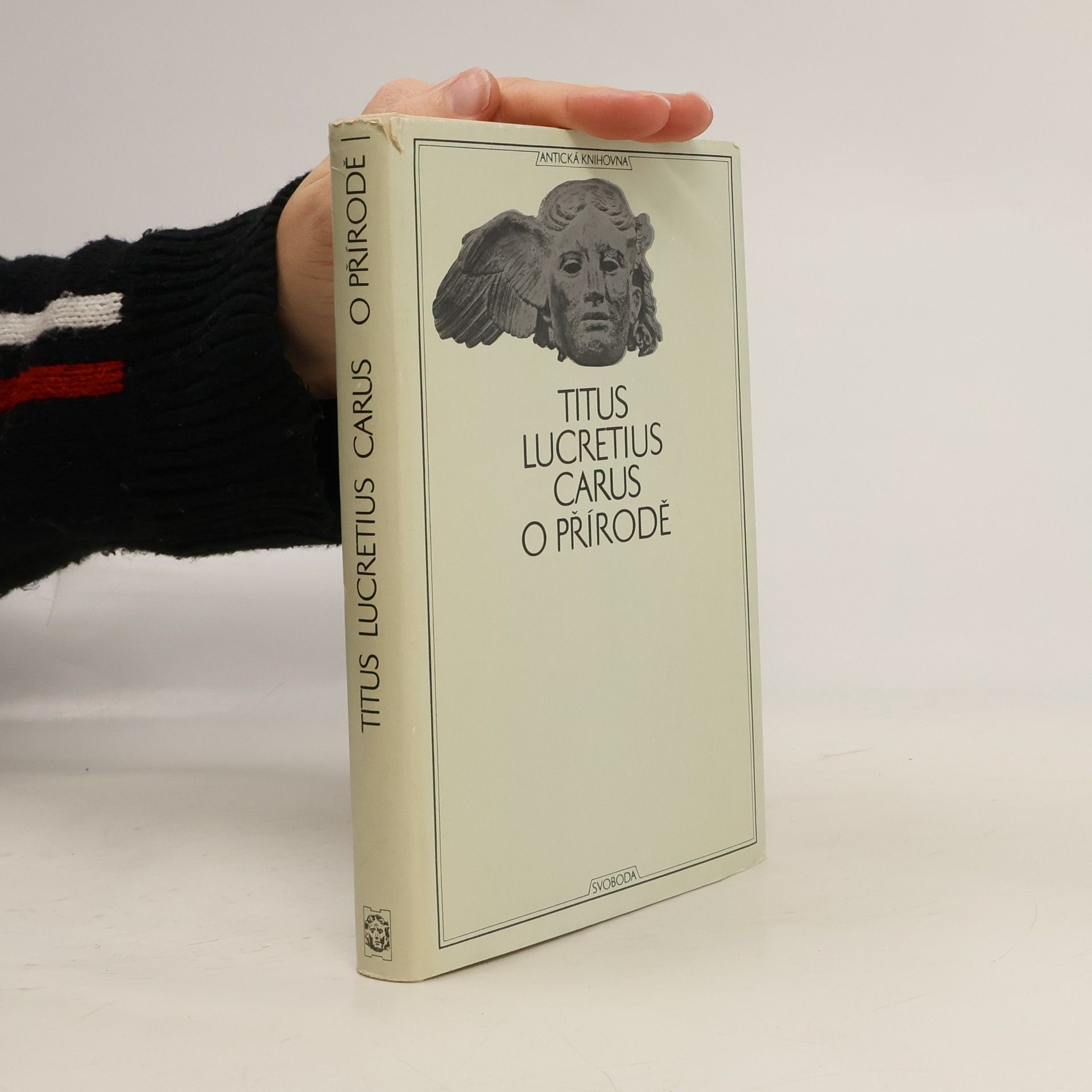La vida de Lucrecio se desenvolvio en la primera mitad del siglo I a.C. Se discuten las fechas exactas de su nacimiento y muerte, asi como las circunstancias de su vida. De la naturaleza de las cosas es el unico ejemplo de epica cientifica que nos ha llegado de la Antiguedad. Nada escapa al afan unificador y explicativo del poeta: los "accidentes" de los cuerpos, los sentidos, las tempestades, el magnetismo, la muerte y el amor, y hasta los suenos. El genio del autor y la riqueza de la doctrina convirtieron una obra filosofica en uno de los mas bellos poemas en lengua latina.
Titus Lucretius Carus Libros
Lucrecio fue un poeta y filósofo romano cuya única obra conocida es un poema filosófico épico que explora los principios y la filosofía del epicureísmo. A través de su escritura, profundizó en las complejidades del universo y la existencia humana, ofreciendo una perspectiva racional sobre el mundo y buscando liberar a los individuos del miedo a la muerte y a los dioses. Su prosa es celebrada por su lenguaje elevado y sus argumentos convincentes, invitando a los lectores a una profunda contemplación de la naturaleza de la realidad. La obra maestra de Lucrecio se erige como un testimonio atemporal de la búsqueda por comprender nuestro lugar dentro del cosmos.







Exploring the philosophy of Epicureanism, this collection features six essential works that delve into the pursuit of pleasure, the nature of the universe, and the contrast between Stoicism and Epicurean thought. Key texts include Epicurus's letters and doctrines, Cicero's examination of good and evil, Lucretius's insights on nature, and essays by Temple and Hicks that further illuminate Epicurean beliefs. Together, these writings provide a comprehensive understanding of Epicurean philosophy and its significance in the broader context of ancient thought.
Lucretius' poem On the Nature of Things combines a scientific and philosophical treatise with some of the greatest poetry ever written. With intense moral fervour he demonstrates to humanity that in death there is nothing to fear since the soul is mortal, and the world and everything in it is governed by the mechanical laws of nature and not by gods; and that by believing this men can live in peace of mind and happiness. He bases this on the atomic theory expounded by the Greek philosopher Epicurus, and continues with an examination of sensation, sex, cosmology, meteorology, and geology, all of these subjects made more attractive by the poetry with which he illustrates them.
Focusing on accessibility, this book is a reproduction of a historical work published by Megali, a house dedicated to producing large print editions. This initiative aims to enhance reading experiences for individuals with impaired vision, ensuring that important historical texts remain available and legible for a wider audience.
Exploring the influence of a prominent Greek philosopher, this book delves into how his ideas have shaped modern thought, often leading to misguided interpretations and applications. It examines the philosopher's original concepts and critiques how they've been misappropriated throughout history. Through a blend of philosophical analysis and cultural commentary, the author highlights the philosopher's role in popularizing notions that have had negative consequences, ultimately encouraging readers to rethink the legacy of these ideas in contemporary society.
Translations from Lucretius
- 98 páginas
- 4 horas de lectura
The preservation of classical literature is highlighted in this modern republication of Lucretius' work. This edition has been meticulously reformatted and retyped to ensure clarity and readability, avoiding the pitfalls of scanned copies. The effort aims to keep the significance of this important text alive for both current and future generations, emphasizing its enduring relevance in human history.
Oxford World's Classics: On the Nature of the Universe
A Verse Translation by Ronald Melville
- 275 páginas
- 10 horas de lectura
This ed. of this translation originally published: 1997.
Název De rerum natura je přesným latinským překladem starého Epikúrova spisu Peri fyseós, dílo tedy objasňuje epikúrejské učení lidu, didakticko-epická báseň (6 knih) je hlavním představitelem materialismu, dokazuje, že příroda se řídí odvěkými zákony, kde vše vzniká, trvá a zaniká,bohové nemohou zasahovat do světa, který povstal z atomů, neexistuje ani podsvětí a bohové žijí v nečinnosti v nebesích, kde se radují ze své blaženosti, Psáno hexametrem, ale používá, oproti Ovidiovi nebo Vergiliovi, neobvyklé řazení přízvuku, používá archaismy i novotvary, podílí se na vytváření latinské filosofické terminologie převodem z řečtiny, věnovánu příteli Gaiu Memmiovi.


